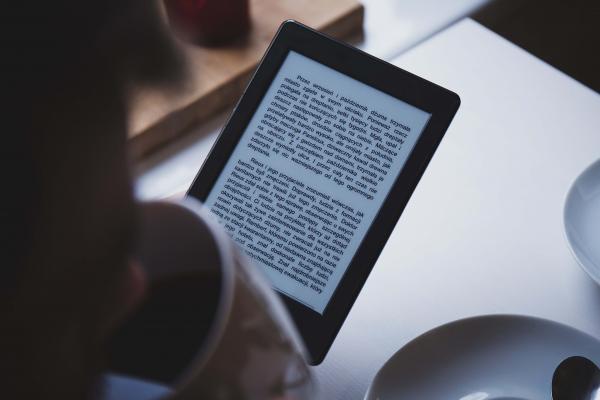
Originally published at https://www.arl.org/blog/if-its-open-is-it-accessible/ on 2021-10-28
The library and open access (OA) publishing communities have made great strides in making more new scholarship openly available. But have we included readers with vision challenges in our OA plans? Only an estimated 7% of all printed works are available in accessible format, and that statistic might not significantly differ for digital scholarship worldwide.
Through the Association of Research Libraries (ARL) and Canadian Association of Research Libraries (CARL) Joint Task Force on Marrakesh Treaty Implementation, the academic and research library community is working towards universal access to the 760 million books they collectively hold across member libraries in the US and Canada. The National Library Service for the Blind and Print Disabled (NLS) in the United States is growing their downloadable braille and e-reader capacity, working closely with the World Intellectual Property Organization (WIPO) Accessible Book Consortium to extend fulfillment of accessible works across international borders within the Marrakesh regime. NLS lent over 20 million books, magazines, and music items during fiscal year 2020, an impressive number by any count.
“The work of implementing the Marrakesh Treaty positions the task force and the research library community to expand the boundaries and embrace the opportunity to add ‘accessible’ as an essential component of ‘open,’ ” says task force chair Victoria Owen. Consequently, libraries should extend their work in open access towards ensuring their collections are both open and accessible. Libraries and publishers should assess their OA platforms for accessible outputs and enhance these platforms to make them universally accessible.
Libraries need to consider accessibility of the document format, as well as accessibility of the tools and platforms they typically use for OA journal and monograph publishing, storage, and access. According to a blog post by the UX designer for the Directory of Open Access Journals last year, testing of a platform’s web interface can be done easily through free tools such as Lighthouse and Accessibility Insights for Web, both available as web browser extensions, which test accessibility against the World Wide Web Consortium (W3C) Web Content Accessibility Guidelines (WCAG) 2.1 AA.
Earlier this year, the Open Journal Systems (OJS) team at the Public Knowledge Project noted the strides that their Accessibility Interest Group team has made to improve the accessibility of OJS 3.3. Next up, they will be working on a guide to help journal editors create more accessible content within OJS.
This leads to the question of the format of open content. Adobe’s Portable Document Format (PDF), ubiquitous and a de facto standard for digital publishing, is typically not the best format for accessibility. Certainly, PDFs can be made WCAG-compliant, but one must make careful efforts to do so.
EPUB 3 is today seen as one of the best formats for accessible digital text to meet accessibility needs. The Canadian National Network for Equitable Library Service advises that “one of the benefits of EPUB 3 is that it is based on HTML 5, which—like epub:type and ARIA semantics—allows semantic richness to be added to content so that it is machine-readable. HTML 5 elements are especially beneficial for readers who use screen readers.”
During this Open Access Week and for the future, along with continuing to celebrate and advance open scholarship in our systems and services, let’s deepen our commitment to making these works universally accessible so truly all can read and learn from them.
Pascal Calarco is a librarian at the J. Francis Leddy Library, University of Windsor, and visiting program officer for ARL and CARL in the Marrakesh Treaty implementation project. He can be reached at pcalarco@uwindsor.ca, and the ARL/CARL Task Force on Marrakesh Treaty Implementation can be reached at arl-carl-marrakesh-tf@arl.org.

Connect with your library